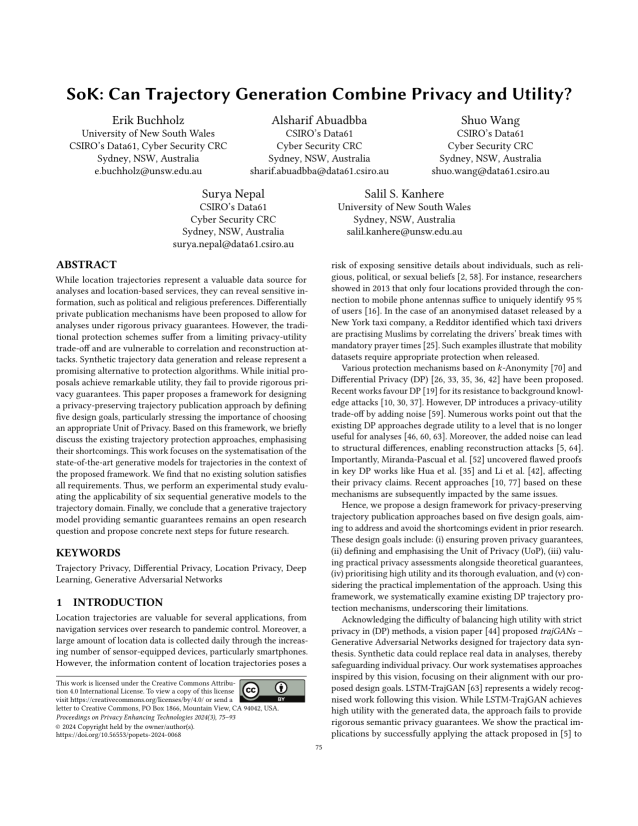SoK: Can Trajectory Generation Combine Privacy and Utility?
Authors: Erik Buchholz (University of New South Wales/CSIRO's Data61/Cyber Security CRC), Alsharif Abuadbba (CSIRO's Data61/Cyber Security CRC), Shuo Wang (CSIRO's Data61/Cyber Security CRC), Surya Nepal (CSIRO's Data61/Cyber Security CRC), Salil S. Kanhere (University of New South Wales)
Volume: 2024
Issue: 3
Pages: 75–93
DOI: https://doi.org/10.56553/popets-2024-0068
Abstract: While location trajectories represent a valuable data source for analyses and location-based services, they can reveal sensitive information, such as political and religious preferences. Differentially private publication mechanisms have been proposed to allow for analyses under rigorous privacy guarantees. However, the traditional protection schemes suffer from a limiting privacy-utility trade-off and are vulnerable to correlation and reconstruction attacks. Synthetic trajectory data generation and release represent a promising alternative to protection algorithms. While initial proposals achieve remarkable utility, they fail to provide rigorous privacy guarantees. This paper proposes a framework for designing a privacy-preserving trajectory publication approach by defining five design goals, particularly stressing the importance of choosing an appropriate Unit of Privacy. Based on this framework, we briefly discuss the existing trajectory protection approaches, emphasising their shortcomings. This work focuses on the systematisation of the state-of-the-art generative models for trajectories in the context of the proposed framework. We find that no existing solution satisfies all requirements. Thus, we perform an experimental study evaluating the applicability of six sequential generative models to the trajectory domain. Finally, we conclude that a generative trajectory model providing semantic guarantees remains an open research question and propose concrete next steps for future research.
Keywords: Trajectory Privacy, Differential Privacy, Location Privacy, Deep Learning, Generative Adversarial Networks
Copyright in PoPETs articles are held by their authors. This article is published under a Creative Commons Attribution 4.0 license.

